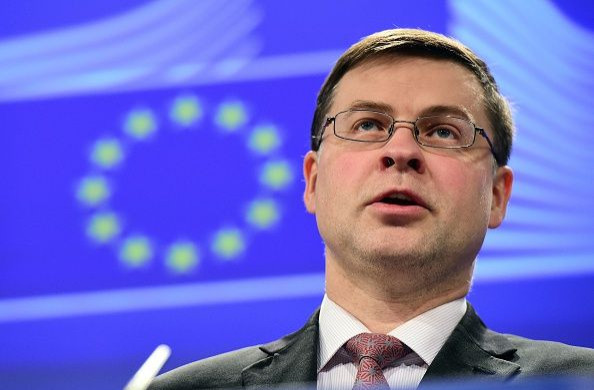EU To Step Up Checks On Bitcoin, Prepaid Cards To Fight Terrorism

The European Commission will propose by the end of June stricter rules on prepaid cards and virtual currencies in a bid to reduce anonymous payments and curb the financing of terrorism, documents released on Tuesday showed.
Responding to attacks in Paris last November by Islamic State militants, the Commission is also considering imposing controls on bank transfers within the EU that are currently not monitored through the controversial EU-US Terrorist Financing Tracking Program (TFTP).
"We must cut off terrorists' access to funds and enable authorities to better track financial flows to prevent devastating attacks such as those in Paris," EU Commission Vice President Valdis Dombrovskis said in a statement.
Brussels intends to curb terrorists' use of all means of payments, including cash and banking transactions, but will initially focus its regulatory work on prepaid cards and virtual currencies, of which Bitcoin is by far the most used with more than 80 percent of the market capitalization.
"There seems to be a risk that virtual currencies may be used by terrorist organizations to conceal financial transactions, as these can be carried out more anonymously," a Commission document said.
Prepaid cards raise the same sort of concerns as their users are not always identified. The French authorities have also proved their use by the Paris attackers.
Prepaid cards are issued by a wide range of operators including banks using major networks, such as Visa and Mastercard. They are different from debit and credit cards because they need to be loaded before payments can be made, but can carry substantial amounts of money.
For both Bitcoin and prepaid cards, the Commission will propose new rules by the end of June forcing the identification of their users.
Users of virtual currencies may have to provide personal data when exchanging Bitcoin for real currencies. Consumers may be obliged to provide their identity when buying prepaid cards, a move that is currently not always required across the EU.
The Commission plan falls short of what was requested by France, which asked for caps on amounts that can be loaded onto prepaid cards and limits on the conversion of virtual currencies into real currencies.
MORE CHECKS ON BANK TRANSFERS?
The EU executive's plan foresees a range of other measures to be implemented by the end of 2017, including possible common rules to freeze terrorist assets across the EU and stricter checks on financial transfers involving some non-EU countries.
Brussels will also assess whether it is feasible to set up a European programme to track terrorist funds, along the lines of the TFTP, which has long been opposed by EU lawmakers and privacy campaigners because it allows widespread checks on consumers' bank transfers.
A decision on whether to move forward with an EU TFTP will be made by the end of 2016.
(Editing by Gareth Jones)
© Copyright Thomson Reuters 2024. All rights reserved.





















